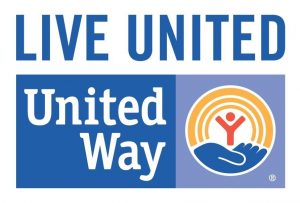
Mental Health – Change Begins With How We Think About It
By Mike Apfelberg and Cynthia Whitaker
Strong communities happen when every individual has the opportunity to contribute to their greatest potential. That potential exists in large part because we have the support of a loving family or a circle of caring friends, a good education, and good health, mentally and physically. Perhaps as a result we are financially comfortable or enjoy a successful career. Much of this we might have and even take for granted. But life can be changeable and in the blink of an eye any of us can find our circumstances changed. In this series of guest commentaries, The Telegraph has generously offered space on a monthly basis to explore some of the serious challenges which can plague us as individuals and as a community.
At United Way, we believe our role is to fight for the health, education, and economic mobility of EVERY person in EVERY community. This can be a daunting task and certainly requires a broad framework to be accomplished. That framework includes government, schools, non-profit organizations, individual volunteers, businesses… in fact, all of us to make measurable change and move the needle in a positive direction. But it can be done. A basic tenet of United Way is that we can pull together and help by giving, advocating, and volunteering.
I will attempt in each of these articles to give the reader a few suggestions about how to help. Each article will be “co-authored” with an expert from the community. This month’s article is about Mental Health, and I can think of no better expert in the field than our own Dr. Cynthia Whitaker, Chief of Services for Greater Nashua Mental Health Center (GNMHC).
When we look at each other we see beauty, intelligence, and the roles people play in our lives (e.g., family, friend, co-worker). But, what we don’t see is that many of the people we know and love also suffer from anxiety, depression, suicidal ideation and addiction. The extent of these illnesses is often underestimated because they are not seen and are frequently hidden due to fear of judgement. According to SAMHSA statistics, 40 million Americans each year suffer from anxiety disorders. Every year 1 in 10 youth ages 13-18 suffer from bi-polar disorder and an additional 11 percent suffer a major depressive episode. Even more vexing are co-occurring disorders, wherein a person simultaneously suffers from a mental illness and a substance misuse disorder. In 2014 there were 7.9 million such individuals in the US. Look around the room you are in or think about your family or a group that you belong to. How many people are there? Statistics estimate that 1 out of every 4 people experienced symptoms of a mental illness in the past year and that the remaining 3 people know someone who has a mental illness, even If you don’t know about it.
More people are affected by mental illness than heart disease or diabetes or cancer, yet people are less likely to seek treatment or donate to those who need treatment. Why is that? Sadly, many people still think of mental illness as a bad mood, a passing thing, or a bad day. It is not. Mental illness is a disease involving the chemicals of the brain that people don’t “just get over” by “pulling themselves up by their bootstraps.” My Dad used to say that when you actually try to pull yourself up by your bootstraps, you will invariably land on your hind quarters. Those who don’t receive treatment can increase their problems by turning to things to take the pain away. In addition, many with untreated mental illness become homeless and die 10-25 years earlier than the general population.
The good news is that there is progress being made in treatment and institutions like Southern New Hampshire Medical Center and GNMHC are partnering together to develop treatments that are integrative and to create a local “Integrative Delivery Network.”
How can you help? Well, it starts by becoming informed. Great resources for learning more can be found on-line at NAMINH.org and SAMHSA.gov. If you are seeking help or know somebody who needs treatment, you can contact 211NH or GNMHC. With knowledge comes increased capacity to volunteer or advocate. Reach out to your local legislators to let them know you care and ask what they are doing to support better mental health. Become involved with the Nashua Prevention Coalition or Change Direction NH. Finally, simply consider that just because you can’t see something that doesn’t mean it isn’t real. Change begins with how we think and discuss mental illness.
Mike Apfelberg is President, United Way of Greater Nashua
Dr. Cynthia Whitaker is Chief of Services, the Greater Nashua Mental Health Center

















